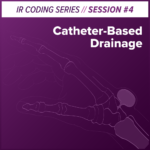There are three laws to consider before moving forward, although the risk of offering the program is small.
Several healthcare organizations have asked whether they can offer free telehealth screening for the novel coronavirus. As the outbreak worsens, keeping patients out of the emergency room benefits patients, each facility, and society. Patients with an infectious disease in the emergency department are at risk of spreading the illness while they wait, and patients in the waiting room are obviously at risk for catching an illness.
Can a healthcare organization say, “during this crisis, we will offer free telehealth diagnostic screening to help you determine whether you need to be seen for your respiratory disease?” While the legal analysis is a bit fuzzy, I wouldn’t focus on the legal arguments for now. This is an exigent situation, and I would do it because it is the right thing. Now, here’s the analysis.
There are at least three laws we need to consider. Some states have an applicable law that mirrors one or both of the two relevant federal laws. Federally, the Anti-Kickback Statute and the civil monetary penalty statute apply. The two are similar, but the civil monetary penalty (CMP) statute, as its name implies, only imposes monetary damages, and is broader than its criminal cousin, the Anti-Kickback Statute. The CMP statute fines an individual that offers remuneration they know or should know is likely to influence a recipient to order services from a particular provider. The keywords are “should know,” “influence,” and “particular provider.” Will free virus screening likely influence patients to choose the provider? There are good arguments that it will not. The advice from the program will often be to “stay home,” meaning that there is no service purchased from anyone. If the patient does need care, they can choose another facility. And finally, there is no reason to think that one free telehealth visit will convert people into lifelong patients of an organization. Of course, someone could disagree. If the statute applies, then we need to consider the exceptions to the law.
The Patient Protection and Affordable Care Act added an exception to the civil monetary penalty statute for “any other remuneration which promotes access to care (and) imposes a low risk of harm to patients in federal healthcare programs that are designated by the Secretary under regulations.” Unfortunately, I don’t know of a regulation that would save it. There is also an exception that applies to certain free services, but only if the items are not offered as part of any advertisement or solicitation (and this program would need to be advertised to be effective).
The bottom line is that I don’t think this proposal fits squarely within any of the CMP exceptions. To comply with the law, we would rely on the argument that it isn’t likely to influence patients to choose you.
The Anti-Kickback Statute makes it a felony to offer remuneration to induce a person to make referrals or purchase services. Because the law is intent-based, I think there is a very strong argument that the program is consistent with the statute. The intent here is safety, and the intent is the test under the statute. A big difference between the CMP provision and this statute is that the CMP law focuses on the patient’s mindset, while the statute focuses on your intent.
The truth here is that my advice is more practical than legal. At this juncture, it’s clearly the right thing to do. I think most regulators would agree that the program is a good idea. When things settle down, the justification may disappear. But right now, even though I can’t say there is no risk, I would recommend doing it while the disease remains a significant threat. Driving to work entails risk. Eating dinner entails risk. Obviously, caring for patients entails risk. Sometimes you need to take risk do, to the right thing. Here, fortunately, the risk of offering the program is small, and it lowers some very real medical risks.
That should make the decision an easy one.
Programming Note: Listen to healthcare attorney David Glaser’s live reporting on Monitor Mondays, 10-10:30 a.m. EST.













